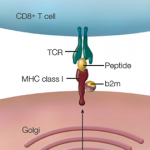In Sum
Dr. Helliwell concluded his lecture with a few take-home points: 1) Heterogeneity of axial involvement in PsA exists, and both the classical and alternative phenotypes of axial disease should be kept in mind; 2) such heterogeneity may relate at least in part to the presence or absence of the HLA-B27 allele; and 3) further studies are needed to define axial PsA and to determine treatment responses in patients with the alternative phenotype of disease. It is through such studies, Dr. Helliwell noted, that his conception of the classical vs. alternative phenotypes of axial disease in PsA and other spondyloarthritic conditions can best be assessed as a conceptual framework.
Jason Liebowitz, MD, completed his fellowship in rheumatology at Johns Hopkins University, Baltimore, where he also earned his medical degree. He is currently in practice with Skylands Medical Group, N.J.
References
- Wright V, Moll JMH. Seronegative Polyarthritis. Amsterdam, North-Holland Pub. Co., 1976.
- Helliwell P, Wright V. Seronegative spondarthritides. Baillieres Clin Rheumatol. 1987 Dec;1(3):491–523.
- Helliwell PS, Hickling P, Wright V. Do the radiological changes of classic ankylosing spondylitis differ from the changes found in the spondylitis associated with inflammatory bowel disease, psoriasis, and reactive arthritis? Ann Rheum Dis. 1998 Mar;57(3):135–140.
- Feld J, Ye JY, Chandran V, et al. Is axial psoriatic arthritis distinct from ankylosing spondylitis with and without concomitant psoriasis? Rheumatology (Oxford). 2020 Jun 1;59(6):1340–1346.
- Feld J, Chandran V, Haroon N, et al. Axial disease in psoriatic arthritis and ankylosing spondylitis: A critical comparison. Nat Rev Rheumatol. 2018 Jun;14(6):363–371.
- Baraliakos X, Gossec L, Pournara E, et al. Secukinumab in patients with psoriatic arthritis and axial manifestations: Results from the double-blind, randomised, phase 3 MAXIMISE trial. Ann Rheum Dis. 2021 May;80(5):582–590.



